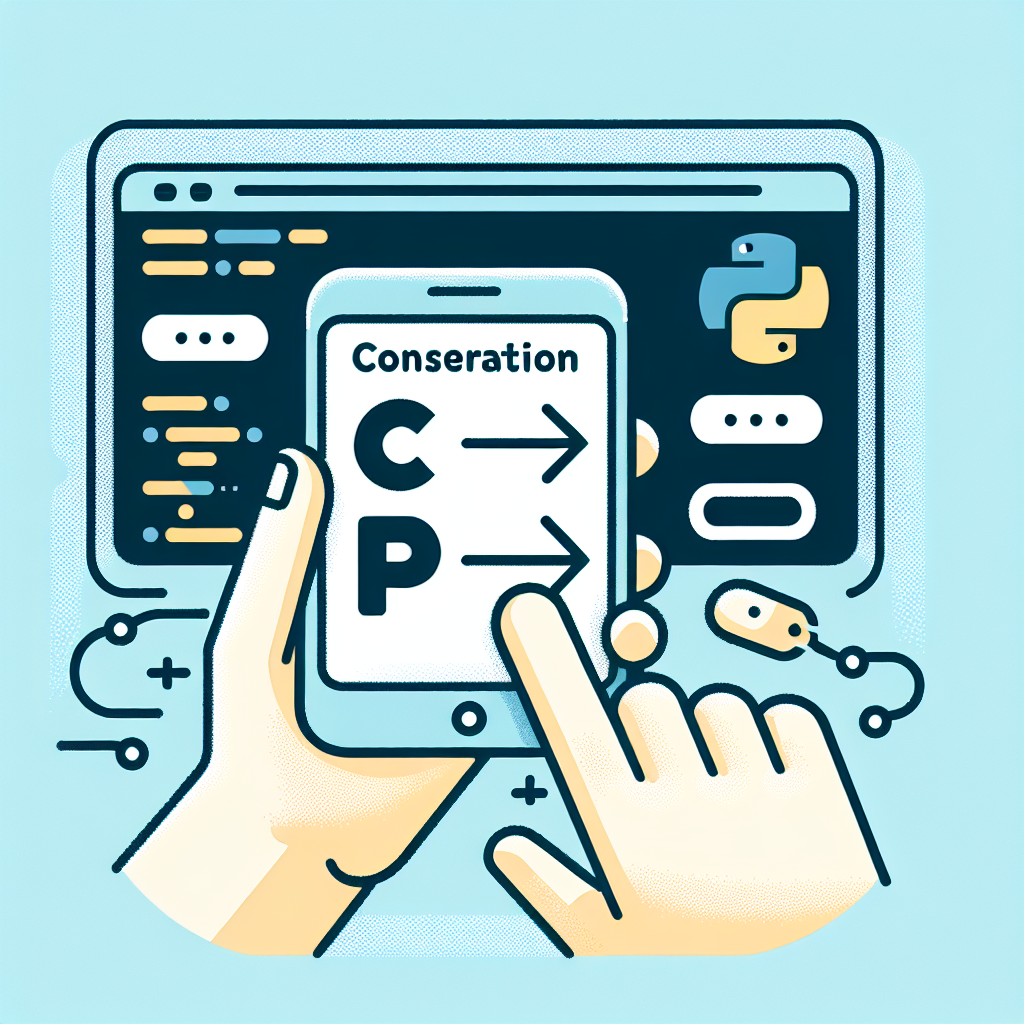Convert C to Python Easily | Efficient Code Translator Tool
Effortlessly convert C code to Python with our advanced tool. Boost productivity and streamline your workflow. Try our C to Python converter today!
Source Code
Converted Code
Output will appear here...
The C to Python Converter is an efficient tool designed to seamlessly translate C code into Python, enhancing code readability and maintainability. Ideal for developers transitioning from C to Python, this tool simplifies code migration, reduces manual conversion errors, and accelerates the development process. Key features include automated syntax conversion, preservation of logic integrity, and support for various C libraries, making it perfect for cross-platform development and legacy system upgrades.

C to Python Code Converter Tool Link to this section #
Transitioning code from C to Python can be tedious, but a "C to Python" tool simplifies this process, enhancing productivity and reducing manual errors. This tool automatically translates C syntax into Python, allowing developers to focus on refining logic rather than syntax conversion.
Key Features Link to this section #
- Automated Syntax Conversion: Quickly convert complex C functions into Python code, saving time and effort.
- Error Handling: Built-in mechanisms to handle common C-to-Python conversion pitfalls, such as pointer management and memory allocation.
- Code Optimization: Suggests Pythonic idioms to improve code readability and performance.
Benefits Link to this section #
- Time-Efficient: Reduces the manual workload involved in language translation.
- Consistency: Ensures uniform conversion standards across projects.
- Learning Aid: Acts as a learning tool for those new to Python, illustrating equivalent constructs in a more readable form.
Example Link to this section #
Convert a simple C function to Python:
// C code
int add(int a, int b) {
return a + b;
}
# Python code
def add(a, b):
return a + b
Usage Tips Link to this section #
- Review Converted Code: Always review the output for logical accuracy and Pythonic conventions.
- Integrate with CI/CD: Incorporate the tool within CI/CD pipelines for automated code conversion during development cycles.
- Leverage Community Resources: Engage with forums and communities like Stack Overflow for insights on complex conversions.
LSI Keywords Link to this section #
- C to Python translation
- Convert C code to Python
- Automatic code conversion tools
- Syntax translation software
For more information on improving code translation accuracy, refer to resources from reputable programming communities, such as the Python Software Foundation and C programming documentation.
Frequently Asked Questions
What are the main differences between C and Python?
C is a procedural programming language known for its performance and low-level memory access, making it suitable for system programming and embedded systems. Python, on the other hand, is an interpreted, high-level language that emphasizes readability and simplicity, often used for web development, data analysis, and scripting.
How can I convert C code to Python?
To convert C code to Python, you need to manually rewrite the code, as there is no direct compiler or tool to automatically convert C code to Python. This involves understanding the logic in C and implementing it in Python, taking into account differences in syntax and available libraries.
Is it possible to call C functions from Python?
Yes, it is possible to call C functions from Python using libraries like ctypes or cffi. These libraries allow you to interface Python with C libraries, enabling you to execute C code within a Python program and leverage the performance benefits of C.